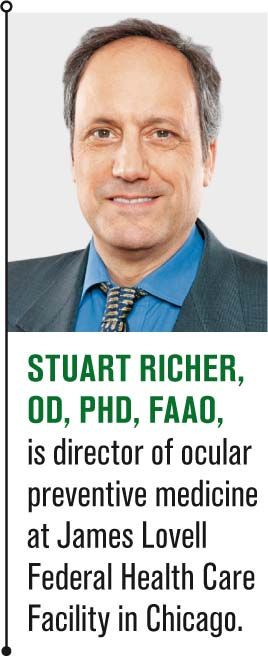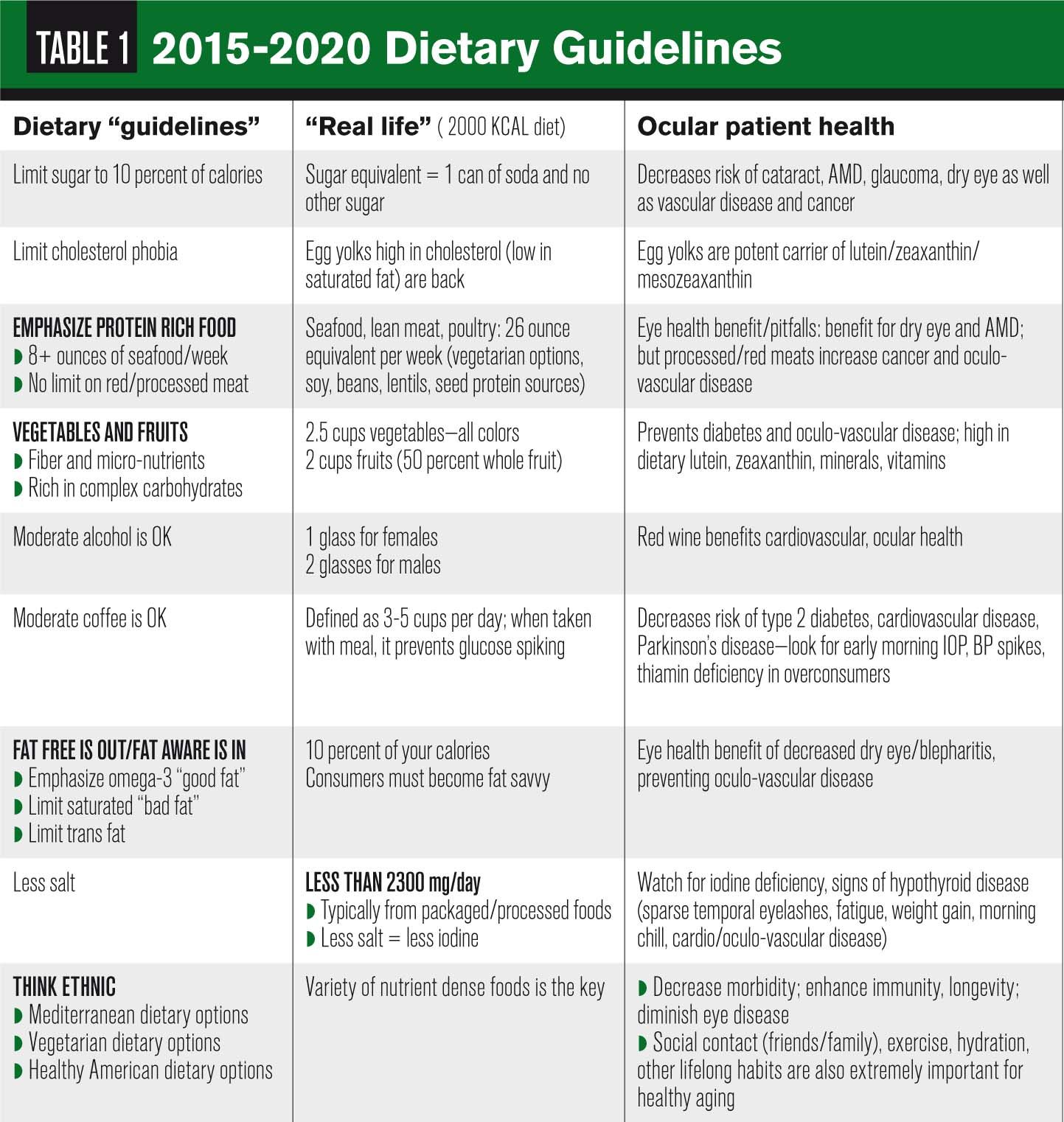How diet and nutrition affect disease
Diet and nutrition play significant roles in the maintenance of health and prevention of disease.1,2 Every five years, our government releases dietary guidelines based upon all the players in the “food fight.

Diet and nutrition play significant roles in the maintenance of health and prevention of disease.1,2 Every five years, our government releases dietary guidelines based upon all the players in the “food fight.” The players include the gargantuan food industry and lowly doctors, scientists, medical associations, and the public. Unfortunately, the first four food pyramids created the most overweight people on earth, along with a diabetes epidemic. 3, 4 The food plate followed, and now we have the newly released 500-page 2015–2020 U.S. dietary guidelines.5
More from Dr. Richer: Why ODs should care about sugar
It appears that doctors, scientists, and the public are finally beginning to get the upper hand with acknowledgement of the individual and combined detrimental pathophysiological health effects of excess simple sugar, low cholesterol, and low healthy fat. The “healthy eating patterns” guidelines are only guidelines and do not account for special situations such as dietary restrictions and biochemical/immunologic individuality.
As I assume the role of the nutrition department author for Optometry Times, I offer this simplified “chairside graphic.” Half of all Americans now have some type of chronic disease.6 We examine the same patient year in and year out. Eye health is associated with cardiovascular and cerebrovascular health. Ocular nutrition is a powerful component of the medical model of optometry.
More from Dr. Richer: ODs must teach patients about proper nutrition

References
1. U.S. Department of Health and Human Services: The Surgeon General's Report on Nutrition and Health. Public Health Service, Washington, DC; 1988.
2. National Research Council Food and Nutrition Board Committee on Diet and Health: Diet and Health: Implications for Reducing Chronic Disease Risk. National Academy Press. Washington, DC; 1989.
3. Sardi B. How a select committee of dieticians and politicians misdirected America into eating a diet that was never satisfying and lowered sex hormone and mood levels while fattening and “diabeticizing” America. Knowledge of Health. Available at: http://knowledgeofhealth.com/how-select-committee-of-dieticians-politicians-misdirected-america/. Accessed 04/11/2016.
4. Harcombe Z, Baker JS, Cooper SM, et al. Evidence from randomised controlled trials did not support the introduction of dietary fat guidelines in 1977 and 1983: a systematic review and meta-analysis. Open Heart 2015 Jan 29;2(1):e000196.
5. Chronic Disease Risk. National Academy Press. Washington, DC; 1989. Available at: http://health.gov/dietaryguidelines/2015/guidelines/. Accessed 2/1/2016.
6. Christensen J. New U.S. dietary guidelines limit sugar, rethink cholesterol. CNN. 2016 Jan 7. Available at: http://www.cnn.com/2016/01/07/health/2015-dietary-guidelines/ Accessed 2/12/2016.
Newsletter
Want more insights like this? Subscribe to Optometry Times and get clinical pearls and practice tips delivered straight to your inbox.